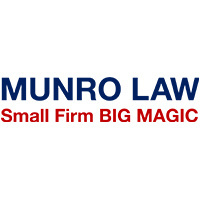 Quicksburg White Collar Crime Lawyers, Virginia
Quicksburg White Collar Crime Lawyers, Virginia
Sponsored Law Firm
-
 x
x

Click For More Info:
-
Price Benowitz LLP
409 7Th St Nw Suite 200 Washington, DC 20004» view mapCriminal Law Working Relentlessly For You
Our firm was built on the understanding that comprehensive representation does not begin and end in the courtroom.
202-600-9400
Not enough matches for Quicksburg White Collar Crime lawyer.
Below are all Quicksburg Criminal lawyers.
Sponsored Lawyers
1-6 of 6 matches
Criminal
Criminal Defense & Child Custody are complex cases and require strong effective representation. Munro Law Firm stands ready for you with free consults in criminal cases and a modest fee for Child Custody cases. Small Firm - BIG MAGIC! Call Now & Let's Talk about what we can do for you. Friendly Attorney - No Obligation - No Risk
(more)


 Seth Price Washington, DC
Seth Price Washington, DC AboutPrice Benowitz LLP
AboutPrice Benowitz LLP Practice AreasExpertise
Practice AreasExpertise

